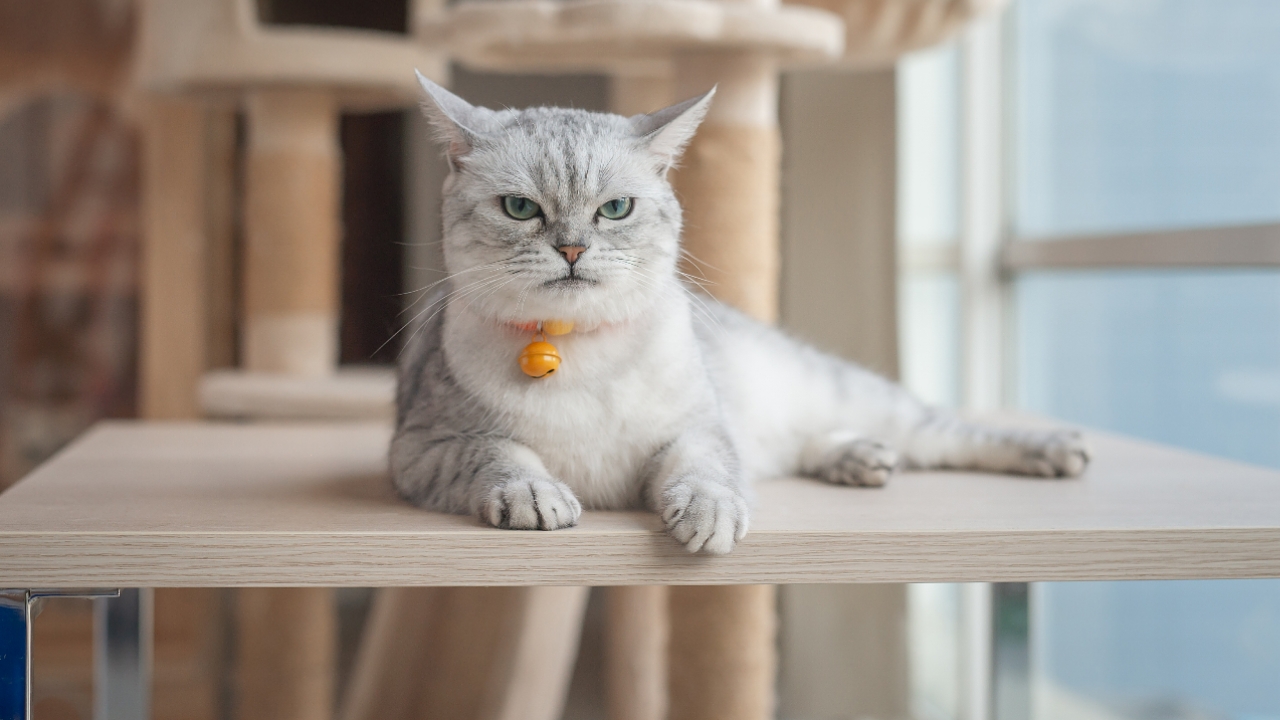13 Smells Cats Absolutely Hate

Cats are sensitive creatures, and there are many ways in which their domestic environment can be upsetting. One factor that owners have to guard against involves unpleasant smells, some of which can drive your pet away.
If you want a happy and settled cat, it’s important to be aware of the smells they hate. While it may not be possible to eliminate them completely, try to reduce their presence and keep a harmonious household.
Most of these smells are harmless, but each is likely to be hated by your kitty. Awareness of the odors they detest can help your mutual relationship.
1. Bananas

A cat’s sense of smell is 14 times stronger than that of humans, and that’s why they are so sensitive to certain odors. If you feel a faint whiff of certain foods, multiply that by 14 and ask whether you’d enjoy it as much.
Cats hate the smell of bananas: The compound causing the issues is isoamyl acetate and this can cause them to sneeze and cough. If you eat bananas regularly, aim to store them away from your cat.
2. Menthol

Menthol can be found in several natural and cosmetic products. It’s common in toothpaste, while peppermint chocolate bars may also contain traces. Wherever it may be found, cats hate it and will look to steer clear.
If cats ingest mint, it may well lead to vomiting and diarrhea, so look to keep it out of the house and yard. It’s harmful to your pet and the aftereffects are unpleasant for humans too.
3. Used Litter Trays

If you start to notice the unpleasant smells coming from your cat’s litter tray, it’s certain your pet will too. The stale odors will be just as disgusting to your kitty, and they will be reluctant to use it.
As an owner of two cats, I can testify that this is true. An odd footnote here is that cats quite like the smell of a fresh litter tray. One of my pets likes to use it as soon as the fresh litter goes down, leaving me to start the cleaning process over again.
4. Coffee

Any product containing caffeine could be off-putting for your cat. Tea is relatively mild, and even though the feline sense of smell is so advanced, cats generally don’t find it an issue.
Coffee, however, is packed with caffeine, and your pet may hate being around you when you take your morning cup. It’s another regular household item that can make them sneeze and cough, so maybe consider switching to decaf. Your cat will love you even more if you make the change.
5. Citrus Fruit

If you have a cat on your lap and you start to peel an orange, don’t expect them to hang around. Felines hate the odor given off by the peel itself, and the smell alone can be enough to give them an upset stomach.
Lemons, limes, and grapefruit are likely to have a similar effect, but this can work in your favor. If you don’t want your cat to climb on the kitchen table, leave all your citrus fruit there to discourage them.
6. Vinegar

Place your nose on a bottle of vinegar and it’s likely you will recoil due to the strong odor. As I write, I’m actually sweating slightly in one of those involuntary reactions to an imaginary smell, and that’s an indication of vinegar’s potency.
Now, remember that your cat’s sense of smell is 14 times more sensitive than yours. It’s no wonder that they hate vinegar, but thankfully that natural reaction prevents them from tasting its potentially harmful acidity.
7. Household Cleaners

Considering that your pet likes a pristine litter tray, it’s surprising to learn that they will likely leave a recently cleaned room. This is because they detest the smell of many of the ingredients used to develop the products.
If you’re thinking of ditching store-bought cleaning products and looking to nature, that won’t help your kitty either. We’ve just seen that they hate the smell of citrus and vinegar, so the best option is to clean one room at a time and keep your cat away.
8. Out-Of-Date Fish

We know that cats love fish, but their sensitive noses can tell when it’s not right. As soon as the fish starts to go off, their senses will tell them not to go near. This can be an advantage for owners, and if the cat doesn’t want to taste the food, you should probably avoid it too.
Unlike other animals who will eat practically anything you put in front of them, cats are picky creatures and will demand only the freshest and the best.
9. Intense Spices

Spices such as curry, pepper, and mustard will see your cat running for the door. It’s not that they don’t appreciate your cooking, the intense aromas from each one are a turn-off and it also acts as a warning.
Each spice could be toxic to cats, but the smell deters them from going further. Their enhanced senses are their way of knowing that the food could be harmful and that internal warning system keeps kitty away.
10. Rosemary

We’re aiming this article at cat lovers, but anyone who wants to keep curious felines out of their garden may find some useful information here. Many herbs deter kitties, but it’s generally the ones with stronger odors that they can’t stand.
Rosemary, with its pungent leaves, is a prime example of a herb plant that cats hate. Others, including mint, thyme, and lavender are also likely to keep cats away.
11. Pine

Some smells are simply unpleasant, but others are toxic to cats. Pine falls into the second category and should be avoided if you are a cat owner. Its resin is the issue, so there is one time of year when your pet won’t feel in a holiday mood.
At Christmas, don’t get a traditional pine tree for the home if you have pets. An artificial tree will be less pleasing to the eye, but your cat will thank you for it.
12. Eucalyptus

It’s another plant that smells foul, while the leaves of the Eucalyptus tree can be toxic. Cats react badly to the odor and it’s recommended that you avoid using any essential oils that contain eucalyptus.
Ironically, some calming sprays may also contain this ingredient, so it’s vital to check the product. Your kitty will be anything but calm if eucalyptus is included.
13. Other Cats

If cats are siblings or are raised together from a young age, they will happily co-exist in your home as a bonded pair. However, they tend to dislike other cats that they meet in adulthood, and may even fight them. One of the reasons for this is associated with smell.
Cats are highly territorial and that enhanced sense of smell allows them to detect other animals straying onto their property. You may also want to avoid stroking other cats, as your own kitty will quickly tell if you’ve been disloyal.





